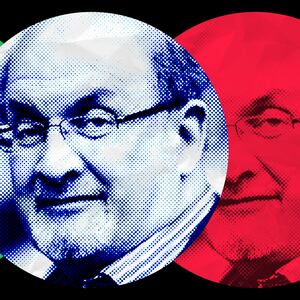The American Civil Liberties Union (ACLU) opposes capital punishment in all cases, considering it an “intolerable denial of civil liberties [that] is uncivilized in theory and unfair and inequitable in practice.”
It was therefore unsurprising when Yasmin Cader and Jeffery Robinson—the current and past directors of the ACLU’s Trone Center for Justice and Equality—published an op-ed)" href="https://urldefense.com/v3/__https://www.washingtonpost.com/opinions/2023/06/28/pittsburgh-synagogue-shooting-death-penalty/__;!!LsXw!Up_psSREltjZP8XmX5SHM3sJudFHCXoGn1T46omYKKiKRN_IA7kRYRRtA9Fi8Epf1f9AjXfYk7_YaxzZZIOifeA0wnPO89fcdMM$">op-ed arguing against imposing the death penalty on Robert Bowers, the convicted murderer of eleven Jewish worshipers at Pittsburgh’s Tree of Life Synagogue.
Their argument is compelling, premised on the “morally bankrupt and inescapably racist” nature of the death penalty, and pointing out the one-sided judicial procedures that allow prosecutors to obtain a “death-qualified” jury.
As a long-time ACLU member, and former criminal defense attorney, I needed no convincing. Others in the Jewish community, however, understandably feel differently)" href="https://urldefense.com/v3/__https://jewishchronicle.timesofisrael.com/letters-to-the-editor-99/__;!!LsXw!Up_psSREltjZP8XmX5SHM3sJudFHCXoGn1T46omYKKiKRN_IA7kRYRRtA9Fi8Epf1f9AjXfYk7_YaxzZZIOifeA0wnPO3D6NTW8$">differently about punishing the perpetrator of the greatest massacre of Jews in U.S. history. Cader and Robinson would have been more persuasive to that audience if they had given more attention to the community’s concerns, instead of skipping past them.
The problems begin in the essay’s first paragraph, when Cader and Robinson refer to the attack as “seemingly motivated by white supremacy and antisemitic hatred.” Whatever the authors’ intention, the use of “seemingly” signals uncertainty, as though Bowers might have had some objective other than killing Jews because they are Jews.
There is no world in which the invasion of a synagogue on Shabbat morning, and the murder of the minyan, is anything other than antisemitic. My family and friends (not all Jewish) gasped out loud when I read that passage to them.
I realize that Bowers’ defense against the death penalty is that mental illness and a “markedly abnormal brain)" href="https://urldefense.com/v3/__https://www.msn.com/en-us/news/crime/pittsburgh-synagogue-killer-has-extensive-history-of-mental-illness-defense-expert-testifies/ar-AA1daXHu__;!!LsXw!Up_psSREltjZP8XmX5SHM3sJudFHCXoGn1T46omYKKiKRN_IA7kRYRRtA9Fi8Epf1f9AjXfYk7_YaxzZZIOifeA0wnPOost34Z8$">markedly abnormal brain” caused him to act on “delusional beliefs)" href="https://urldefense.com/v3/__https://www.cnn.com/2023/06/26/us/pittsburgh-synagogue-death-penalty-trial/index.html__;!!LsXw!Up_psSREltjZP8XmX5SHM3sJudFHCXoGn1T46omYKKiKRN_IA7kRYRRtA9Fi8Epf1f9AjXfYk7_YaxzZZIOifeA0wnPOf3xOSGM$">delusional beliefs.” One of those beliefs, which Bowers expressed)" href="https://urldefense.com/v3/__https://www.cnn.com/2023/06/26/us/pittsburgh-synagogue-death-penalty-trial/index.html__;!!LsXw!Up_psSREltjZP8XmX5SHM3sJudFHCXoGn1T46omYKKiKRN_IA7kRYRRtA9Fi8Epf1f9AjXfYk7_YaxzZZIOifeA0wnPOf3xOSGM$">expressed to an arresting officer, was that “all Jews had to die.”
Defense attorneys are ethically required to raise any plausible argument to save a client’s life, even if that calls for recasting an obvious motive as only seemingly antisemitic. But Cader and Robinson were under no such obligation. The jury will never see their op-ed, and their categorical argument against ever imposing the death penalty does not rest on mitigating Bowers’ determination to kill Jews.
No matter how delusional he may have been, Bowers’ beliefs did not come out of nowhere. In the days before his attack at Tree of Life, he repeated)" href="https://urldefense.com/v3/__https://www.newyorker.com/news/our-columnists/why-the-tree-of-life-shooter-was-fixated-on-the-hebrew-immigrant-aid-society__;!!LsXw!Up_psSREltjZP8XmX5SHM3sJudFHCXoGn1T46omYKKiKRN_IA7kRYRRtA9Fi8Epf1f9AjXfYk7_YaxzZZIOifeA0wnPOk2VYDQE$">repeated the internet meme that the “filthy evil Jews” of the Hebrew Immigrant Aid Society (HIAS) were bringing “hostile invaders” into the U.S.
Some relatives)" href="https://urldefense.com/v3/__https://www.cnn.com/2023/06/26/us/pittsburgh-synagogue-death-penalty-trial-families/index.html__;!!LsXw!Up_psSREltjZP8XmX5SHM3sJudFHCXoGn1T46omYKKiKRN_IA7kRYRRtA9Fi8Epf1f9AjXfYk7_YaxzZZIOifeA0wnPOa46epGs$">relatives of the murdered victims seek the execution of Bowers, and some do not. Cader and Robinson understand that they all “deserve justice,” but criticize the prosecutors for refusing to accept Bowers’ offer to plead guilty in exchange for a life sentence without parole. They fail to recognize that a guilty plea would have precluded Bowers’ trial, which fully exposed his anti-Jewish rantings, and their sources on the internet, in nearly three weeks of widely reported testimony.
Cader and Robinson may see little comparative value in the lengthy public accounting of Bowers’ crime, but they would have done well to at least acknowledge that it was meaningful for the survivors.
The authors also write that they appreciate that “all Americans deserve to gather with their communities and practice their faiths in safety,” but antisemitism is more than a manifestation of white supremacy as it affects us all. It is a unique and ancient ideology that holds Jews collectively responsible for the perceived troubles of the world—not only wars and depressions, but also pornography, pandemics, and lately, the so-called “great replacement.”
Such conspiracy theories, fantasized on both the right and the left, have made rising antisemitism an international phenomenon. They have led to attacks on Jewish institutions around the world, with many fatalities, including a pilgrimage in Tunisia)" href="https://urldefense.com/v3/__https://www.nytimes.com/2023/05/10/world/middleeast/tunisia-shooting-synagogue.html__;!!LsXw!Up_psSREltjZP8XmX5SHM3sJudFHCXoGn1T46omYKKiKRN_IA7kRYRRtA9Fi8Epf1f9AjXfYk7_YaxzZZIOifeA0wnPOoRNv-M4$">Tunisia, kosher markets in France)" href="https://urldefense.com/v3/__https://www.theguardian.com/world/2020/sep/23/cashier-zarie-sibony-tells-of-four-hour-ordeal-in-paris-supermarket-siege__;!!LsXw!Up_psSREltjZP8XmX5SHM3sJudFHCXoGn1T46omYKKiKRN_IA7kRYRRtA9Fi8Epf1f9AjXfYk7_YaxzZZIOifeA0wnPOWTY5s00$">France and New Jersey)" href="https://urldefense.com/v3/__https://www.nbcnewyork.com/news/local/synagogue-to-hold-memorial-one-year-after-hate-fueled-attack-at-nj-kosher-market/2771956/__;!!LsXw!Up_psSREltjZP8XmX5SHM3sJudFHCXoGn1T46omYKKiKRN_IA7kRYRRtA9Fi8Epf1f9AjXfYk7_YaxzZZIOifeA0wnPOBgEHBR4$">New Jersey, a Jewish museum in Belgium)" href="https://urldefense.com/v3/__https://www.bbc.com/news/world-europe-46822469__;!!LsXw!Up_psSREltjZP8XmX5SHM3sJudFHCXoGn1T46omYKKiKRN_IA7kRYRRtA9Fi8Epf1f9AjXfYk7_YaxzZZIOifeA0wnPOcx2jLgg$">Belgium, a Hanukkah party in New York)" href="https://urldefense.com/v3/__https://www.jns.org/five-injured-in-mass-stabbing-attack-at-new-york-hanukkah-party/__;!!LsXw!Up_psSREltjZP8XmX5SHM3sJudFHCXoGn1T46omYKKiKRN_IA7kRYRRtA9Fi8Epf1f9AjXfYk7_YaxzZZIOifeA0wnPOolVRZpk$">New York, a Jewish Community Center in Argentina)" href="https://urldefense.com/v3/__https://www.nytimes.com/2022/07/22/world/middleeast/argentina-mossad-hezbollah-bombings.html__;!!LsXw!Up_psSREltjZP8XmX5SHM3sJudFHCXoGn1T46omYKKiKRN_IA7kRYRRtA9Fi8Epf1f9AjXfYk7_YaxzZZIOifeA0wnPOjEePX54$">Argentina, and synagogues in California)" href="https://urldefense.com/v3/__https://www.nytimes.com/2019/04/29/us/synagogue-shooting.html__;!!LsXw!Up_psSREltjZP8XmX5SHM3sJudFHCXoGn1T46omYKKiKRN_IA7kRYRRtA9Fi8Epf1f9AjXfYk7_YaxzZZIOifeA0wnPO2nxskO8$">California and Texas)" href="https://urldefense.com/v3/__https://www.nytimes.com/2022/01/16/us/hostage-texas-synagogue.html__;!!LsXw!Up_psSREltjZP8XmX5SHM3sJudFHCXoGn1T46omYKKiKRN_IA7kRYRRtA9Fi8Epf1f9AjXfYk7_YaxzZZIOifeA0wnPOH8POctA$">Texas, to name only a few.
I have always taught my law students to address the strongest arguments on the other side, rather than avoid or deflect them. The case against the death penalty for Bowers would have been more powerful, especially within the Jewish community, if Cader and Robinson had been more forthright about his antisemitic motivation and the reasons to confront it in court.
Bowers is an unapologetic Jew-hater, among many throughout the world whose murderous attacks have become alarmingly recurrent. Cader and Robinson must acknowledge that reality if they are truly to make their case against the death penalty: even recognizing Bowers for who is, and what he represents, it would still be wrong for the government to take his life.
Cader and Robinson are honorable and dedicated advocates for principles that I share. I do not for a moment mean to question their good will. Nor do I think I’ve made too much of a single word and the implications that followed.
The fact is, the reference in their op-ed to seeming antisemitism is dismissive, at best. (The authors would certainly recoil if someone described them as “seemingly” concerned about the safety of American Jews.)
It’s not hard to oppose the death penalty on moral terms, and over its ongoing racist legacy, without breezing past a mass murderer’s motivation: antisemitic hate.








